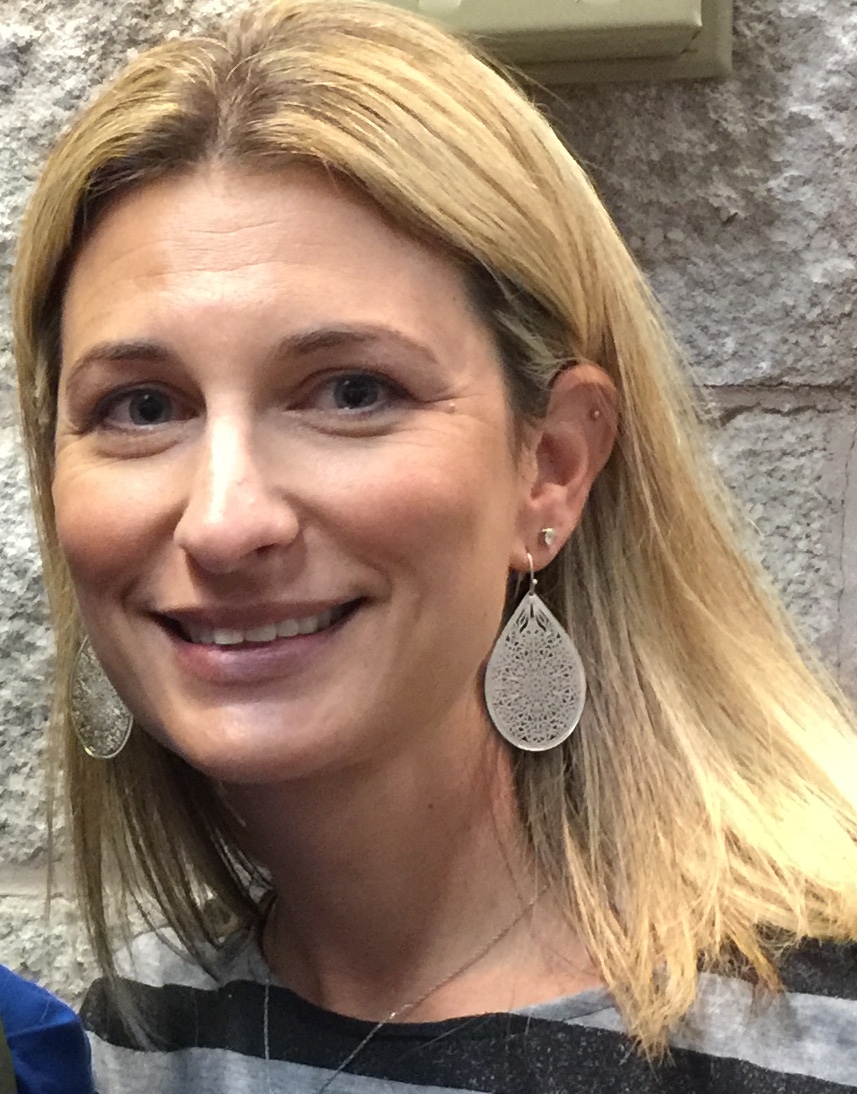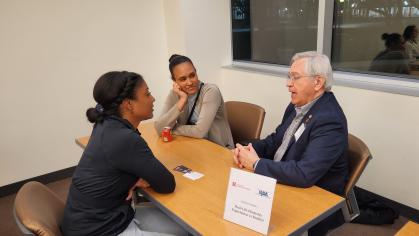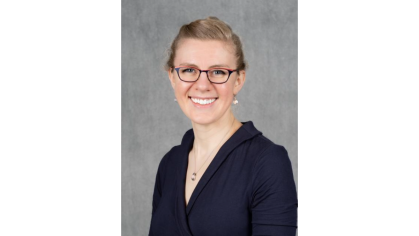Alum: Routine Dental Check-Up Can Save Lives
The five-year-old patient had swollen lymph nodes, but otherwise he seemed fine. His throat wasn’t sore; he didn’t have a fever and he'd just returned from Disney World, where he showed no signs of lethargy.
That’s what worried his dentist, Dr. Lauren Lapinski, as she finished the routine head and neck exam she gives all patients. “The fact that he looked perfect was scaring me,’’ recalls Lapinski, a 2005 graduate of RSDM. She suspected the boy might have a serious illness.
When his pediatrician was alerted and his tonsils appeared fine, the response was skepticism. But test results revealed the child had leukemia. The good news? Because it was caught so early – even before he was symptomatic – the boy went into remission after eight days of treatment.
Lapinski, who returned to RSDM last month to lecture students, explained how routine procedures, like head and neck exams, can reveal a wealth of information about patients, even before family doctors and specialists can spot a potential health threat.
Lapinski, who has a general dentistry practice in Hillsborough, has detected symptoms of sleep disorders, sinus problems and thyroid cancer. Her thorough head and neck exam technique is one explanation. But she also pays attention to other signs. Knowing when something doesn’t look right, and making sure the proper physician is notified, can save lives, says Lapinski.
While the right examination technique is important –- having the patient lie down and tilt their head back is critical, according to Lapinski –- just as crucial is being alert to any changes in a patient’s physical or mental health. Being a good listener can make a big difference, she says.
Lapinski recalled her concern when a patient with normally healthy gums displayed the bleeding gingiva associated with pregnancy. She reported having hot flashes and feeling especially moody, although she was neither pregnant nor menopausal. She advised the woman to check in with her OB-GYN, who ordered tests that revealed breast cancer.
Lapinski’s patients have also included those suffering from sleep apnea and children with speech defects that were easily corrected through minor surgery “I always ask them, ‘Can you say Mississippi for me?’’ she explains.
While she’s proud of her success in spotting disease and other health problems, Lapinski is often frustrated by the response of other physicians. “They still think dentists are not real doctors, that all we do is drill and fill,’’ she says.”They have no idea of our real role.’’
Although there is a growing awareness in the medical world that dentists are doctors, too, the change has been slow, says Lapinski. So when she she anticipates that a provider will dismiss her concerns, she offers her patients advice: “I say, 'Don’t tell your doctor that your dentist told you this. Tell them you Googled it.'’’




